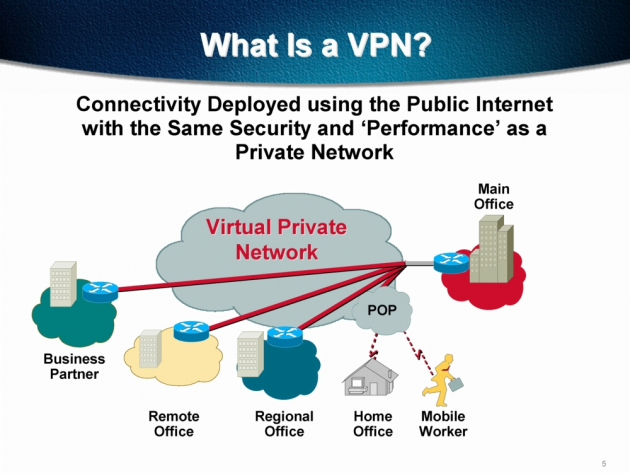China Now Blocking VPNs inside China to Prevent Email Access
As discussed in the comments of our post on the censorship of Outlook.com and previous blocking of the Gmail domain by Chinese authorities, reports have surfaced over the last couple of days of difficulties for users of virtual private network (VPN) clients from getting around local blocks to email and web sites inside of China.
The Chinese online site People's Daily indicated earlier that the China Great Firewall had been upgraded to implement what was termed as “cyberspace sovereignty”. Essentially, the expulsion of Western web interests in favor of domestic ones similar to the North Korean approach to internet use in some respects.
Advising Citizens Only In English
The Global Times, which is part of the ruling party flagship newspaper group, did publish a news story about the VPN blocking via increased censorship on Friday but only in the English version keeping Chinese citizens in the dark.
Virtual Private Networks
Virtual private networks had previously made it possible to login into a VPN account and route around local censorship and domain or IP level blocks by ISPs or internet authorities because all network traffic is heavily encrypted, sent outside of the country's reach, and only then is it decrypted. From there, the web use continues normally. This avoids the use of local domain name server access which is blocked at the country level.
Multiple Western Sites Being Blocked
Previously sites like Twitter and Facebook were completely blocked inside China, something that the founder of Facebook discussed with China's internet zsar when he visited the company's offices recently. Gmail and Outlook were then added to the list of western online operations that China was systematically removing access to for both Chinese citizens and expats who operate businesses on the Chinese mainland.
Multiple Virtual Private Networks Experiencing Connection Difficulties
It is already known that at least three VPN services are experiencing difficulties in continuing to provide a useful service to people inside of China.
Strong VPN, one of the most popular VPN service providers, noted in a recent blog post that they were experiencing what they described as “connection issues” for users in China.
TunnelBear, another excellent VPN provider which is cross-platform on Windows, Mac, iOS and Android systems, commented to TechCrunch that they are looking more closely at reports from Chinese users over the past days and weeks who are having difficulties connecting using the TunnelBear VPN app from within China.
Astrill is another popular VPN provider favored for its encryption levels and competent service. Astrill is one of the VPNs that has a strong following with Chinese users. Chinese expats, natural citizens and business users were finding issues connecting via the Astrill iOS client. The company is working on releasing a new version of their iOS app for iPhones and iPads which it is expected to release within about a week. So far, other cross-platform apps from Astrill were not experiencing problems connecting and have been running the VPN encrypted service from inside the country. One Astrill employee commented to People's Daily that they were unclear how long the upgraded security by Chinese authorities would last.
VyprVPN is another noted VPN service which has indicated that since the upgrade in China there has been more blocking and other communication problems created by authorities but that their service remains fully functioning at the present time despite the increased sophistication in the Chinese blocking attempts.
ExpressVPN also spoke with TechCrunch and stated that their services were functioning normally across all their supported platforms for all customers including those originating in China.
Golden Frog (a popular Chinese VPN provider) president Yokubaitis commented late on Sunday 25 that it is clear that “the Chinese government has attempted to curtail the user of VPNs” and it seems that “deep packet inspection” is being used. This means that individual data packets send over the internet (internet communications is essentially broken down into small packets of data to increase the success rates of sending across the internet and then reassembled at the other end of the transmission) are being inspected one by one. VPN protocols used are being looked at for tell-tale signs of VPN use, and the endpoints of VPN servers are also being reviewed to try to block VPN services on a per provider basis.
Disruption With Email Access Growing Over Time
The level of internet access disruption for users within China varies through the year but peaks during controversial times such as the Tiananmen Square Anniversary. In recent months there has been an increased attempt to block email access which has taken aim at the email protocols of POP, SMAP, and IMAP, then more recently Gmail's service from Google and then Outlook.com from Microsoft.
Damaging To Chinese Business Interests
The issue goes beyond email and web access because when citizens and businesses cannot access web sites throughout the world in order to perform research, develop new products, provide business services and more, they may end up unable to compete successfully on a global basis. For foreign expats in China, many could feel that the latest censorship of the internet is a clear message that they are not wanted in the country and should leave. When expats can no longer access emails from friends and family, then they can begin to feel extremely isolated and this cannot be good for personal happiness.


